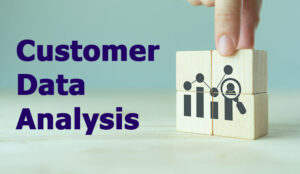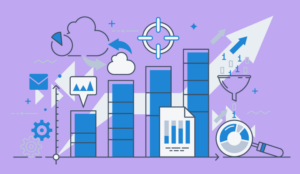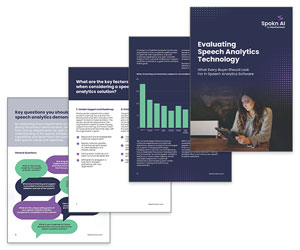What Is Customer Data Analysis?
Data analysis is the process of mining raw data for insights. These insights will be relevant to your organization’s key goals.
For example, your company might decide to run customer data analysis to:
- Understand customer demand
- Formulate metric scores
- Run root cause analysis
- Discover how people judge your customer experience
- Assess areas of high customer effort
These are just some of the reasons why a business may want to run data analysis of either quantitative or qualitative data – or perhaps even both.
What’s the difference between quantitative or qualitative data, you ask? Well:
Quantitative Data
This data is expressed through numbers that can be counted and measured. It is often presented visually in tables and graphs. It can therefore be useful to analyse this data to inform your decision-making, but it will not usually enlighten you as to how you can solve a problem.
Qualitative Data
This data is illustrative and can be categorized in order to define a problem. It is also often used to add context to quantitative findings, as qualitative data is non-numeric. A customer’s personal information (gender, address, etc.) is an example of qualitative data.
The data sets, be they quantitative or qualitative, that you mine will depend very much on what business insights you are looking to obtain.
What Types of Customer Data Analysis Are There?
There is no greater source of data and insight within an organization than the contact centre.
With this in mind, Jonathan Wax of NICE Nexidia introduces us to six great ways to analyse contact centre data, in order to provide value to the entire business.
Interaction Analytics
By analysing customer interactions, you can uncover context, sentiment and behaviour, as well as intent. This enables you to run root cause analysis and predictive modelling, find event triggers and report on key metrics.
Desktop Analytics
By using desktop analytics, you can map and monitor service processes. This enables you to measure skill vs. will, find the true process cycle time and calculate “first touch resolution”.
Journey Analytics
Journey analytics provides you with a multichannel picture of your individual and overall customer journeys, helping you to understand why customers switch between certain channels and behave how they do.
IVR Optimization
Data that is stored within your IVR can be used to identify “choke points” or bottlenecks to increase overall containment.
Voice of the Customer (VoC) Analytics
VoC analytics includes the analysis of both direct and indirect feedback. A specialist VoC tool can provide teams with role-specific charts, reports and alerts, helping to deliver business-critical insights.
Predictive Behavioural Analytics
Using call routing software, you can match customers with agents by pairing them up based on their personality style and other information – e.g. age, address and interaction history – in order to improve rapport building.
Author: Robyn Coppell
Published On: 24th Nov 2022
Read more about - Definitions, Analytics




































